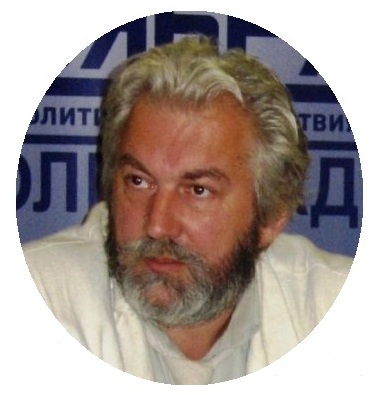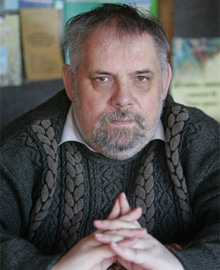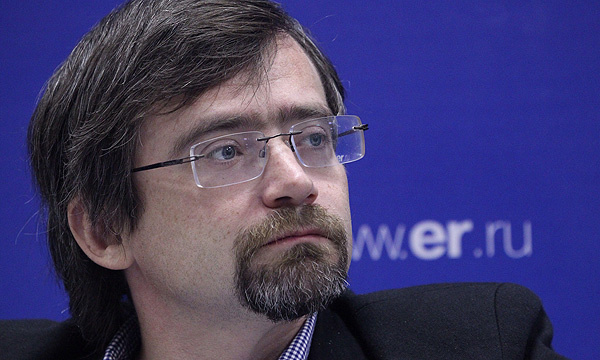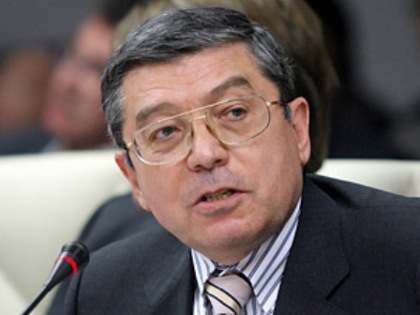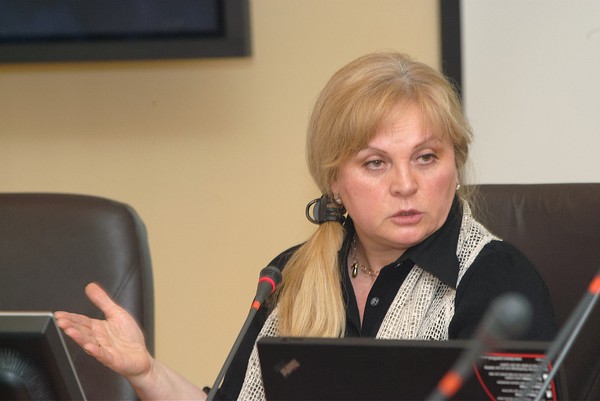Mythical classes: The self-identified “middle class,” “intellectuals,” and “entrepreneurs”
05/17/2012Published 03.05.2012
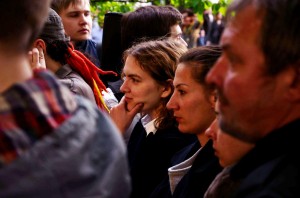 Results of nationwide survey in Russia, commissioned by the Service Sreda (field work: FOM-Penta, 1500 respondents, 2012). Respondents were asked the following, “Do you agree with the statement…”:
Results of nationwide survey in Russia, commissioned by the Service Sreda (field work: FOM-Penta, 1500 respondents, 2012). Respondents were asked the following, “Do you agree with the statement…”:
- 1. “I consider myself a part of the middle class”
- 2. “I consider myself an intellectual”
- 3. “I am able to begin and conduct my own business”
Does Russia have a market economy? Are the market mechanisms working, or is the Russian market “a self-identified market”? What is the nature of this market: capitalist, administrative, barter? While the debate continues, the service Sreda decided to look at the Russian class (as well as estate) social structure, not through the eyes of experts, but through the eyes of Russians. By our own evaluation, Who of us represents the middle class, the intelligentsia, or the innovators?
THE MIDDLE CLASS – 54%
Over half of the surveyed Russians (54%) identify themselves as part of the middle class. At that, not only do managers, specialists, and workers connect themselves with the middle class, but also a third of unemployed pensioners (38%). It turns out that material income is not considered by Russians to be a determining factor in considering oneself a part of the middle class. As such, almost a half of respondents (46%) who consider themselves in the middle class do not have enough resources to buy household appliances. Only 4% have the means to buy a car, but not one of these respondents can by an apartment or house. At the same time, respondents’ membership in the middle class is influenced by their sphere of work; on average, the people most likely to consider themselves middle class work in healthcare and industrial productions, but less likely are those who work in the military. Those who work with art and culture most often found the question too difficult to answer.
A distinctive feature of the “middle class” is the discrimination of their neighbors. They have no interest in living near drug addicts, drinkers, those who are HIV-positive, people with different sexual orientation, or near those who have a criminal record. Over a third does not want to live near foreigners from Central Asia. At the same time, in Russia on average, the percentage of respondents, who have no interest in living people from the above categories of persons below, is lower.
INNTELECTUALS – 33%
A third of the polled Russians (33%) consider themselves intellectuals – so states the nationwide poll. More often, women consider themselves intellectuals (two-thirds of women polled consider themselves members of this class), also respondents between the ages of 18-24 and from 55-64, and lastly those who work in education. Even at that, having a higher education is not a required attribute of intellectuals. Only 37% of those who consider themselves intellectuals have a higher education.
Finally, in terms of revenue, the intellectuals are no different than the middle class. The distribution of wealth in these groups is identical. Interestingly, the intellectuals, while appreciating the extent to which they associate themselves with the place they live (Question: ” On a scale from one to eight, how much do you feel that you are a member / involved in … “), as well as Russian culture and traditions, more than other groups they refer to themselves as “citizens of the world.”
According to the poll, intellectuals also more often take part in charity and more often call themselves patriots.
“THE INTELLECTUAL MIDDLE CLASS” – 23%
Almost one-fourth of the polled Russians (23%) consider themselves part of the middle class as well as the intellectuals. Of those polled:
– 38% have received higher education; 32% have received middle degrees
– 52% are in a condition to be able to provide themselves with at least food and clothes; 26% are able to purchase household appliances
– 22% are specialists; 18% are nonworking pensioners
– 27% live in Russia’s largest cities
The percentage of Orthodox Christians associated with the Russian Orthodox Church in this group is higher than in the sample as a whole.
FAITH AND TRUST
Although the “middle class” is a direct result of the market economy and the theoretical support of liberal ideas (in politics – democracy, the economy – private property, in the culture – the lack of censorship), Russia’s self-identified middle class turns out to be quite conservative. Its representatives more often agree with the statement “the past is more important than the future,” as well as tend toward collectivism, while the intellectuals, by contrast, are somewhat more individualistic. The Russian middle class is trusting; the level of its confidence in the Church, Patriarch Kirill, Vladimir Putin, and even modern medicine is somewhat higher than the average for Russia. Respondents considering themselves as middle class, are more likely to believe the Russian Orthodox Church today, marching in step with the times. In their view, the meaning of today’s church is in the beauty of worship and helping people, and the church should be open.
On the other hand, intellectuals in general are less trusting. They often lean towards the opposition and have less confidence in the Patriarch, although amongst the intellectuals it is quite common to find Orthodox Christians and regular worshipers. At the same time, it is the intellectuals who wait on the clergy for opinions on socio-political issues and consider the Church a part of Russian Statehood and a stronghold for the preservation of tradition. The main requirement intellectuals have for the church is modesty.
ALL AT ONCE
4% of respondents classified themselves as middle class, intellectuals, and even said they are ready to run their own business. The number of men and women in this group is evenly split, the majority of respondents younger than 35 years of age, income level is average, and half of the group are professionals and employees. They above average live in big cities.
The portion of Russian Orthodox Christians who trust in Vladimir Putin, and who trust the Church in this small group is noticeably larger than in the sample on the whole. The number of happy people in this group is also noticeably greater than the number of happy people in the general sample.
Photographs used in this material are the work of Dmitry Antanov and Vadim Lurye
Before using this material, we ask you to refer to the primary source: Research Service Sreda www.sreda.org
Expert commentary on the results of the poll
Michael Tarusin , sociologist, director of the Institute of Public Social Design
Classifying oneself to the middle class results in people surrounding themselves with people of about the same social status.
Kryshtanovskaya has for a long time measured the middle class by self-identification and also has received a result of 50%. The thing is that a person usually lives around people of about the same social status as he. Based on that, he feels like he has an average amount of opportunity and sincerely considers himself to be average (even if he is surrounded by poverty). Therefore, he considers himself as part of the middle class even when at the same time, by normal indicators (income, education, status), in no way does he belong in this class.
The Intellectuals are generally not defined in clear terms, and to not ask people a concrete question, then everyone will judge based off their own definition, and the researchers themselves may not even know what an intellectual is. But usually, it is somewhere close to Chekhov and to everlasting opposition to everything, especially the government (it does not matter who is in power), but farther from the Orthodox temples. That is basically what you saw in this poll. But I have doubts when Sreda reports that there are so many. I, for example, do not count myself as one of them. I also would not advise getting involved with them.
You showed that entrepreneurs made up 13% of the sample. I had more in my poll, but here is very important what question was asked; I am not sure what that your question was. My records were in 2005; since that time, there has been more demand, there have been all kinds of crisis, bureaucrats have let themselves go, and judges have been pocketed. There are all sorts of reasons. But you need to evaluate the results with comparisons; if this turns out to be correct, then that can be bad. It means that the climate has become worse. So we need to take a look at this. But in general, these results are to be expected. But I recommend giving the output*, to keep order.
Leonty Byzov , Senior Research Fellow of the Institute of Sociology Academy of Sciences, member of the scientific advisory council WCIOM
The basis of the “middle class” are skilled professionals, civil servants and only in third place – the entrepreneurs
I consider the “middle class” and those who are called the “middle strata” of society the largest group that does not hold to the situation of the middle class, but in many respects have a similar system of values and life strategies. If in the formulation of the question, these groups do not grow, then it means they are confused.
The middle class itself, by my calculations, consists of 25-28% of the population; in large metropolises, the number is higher than 45-50%. The class’s base consists of qualified specialists, civil servants, and then in the third place – entrepreneurs. If we (as usual) conduct a self-identification survey on a ten point scale, then the middle class holds the position 6-8, and the middle strata would hold the positions 3-5; the median of this dispersion is somewhere in the area of 4-4.2, which means that this is standing like a pear with a flat bottom, and not a lemon balances on its end.
On account of the intellectuals, I do not have any special arguments. But entrepreneurs make up 13%? That seems very largeto me. Most likely the greater part of this number is made up of small business owners, owners of stalls on the market place, etc. It would probably be worth it to put them into a separate group. I agree with Tarusin’s comments, we conducted research together in 2008.
Valeriy Fedorov, General director of the Russian Public Opinion Research Center (WCIOM)
It has recently become acceptable for the middle class to be a part of society. Just like twenty years ago it was not acceptable to call yourself Orthodox
These results are not exactly sensational, but some conclusions can still be made. First, the term “middle class” has finally taken on a life of its own. For nearly a decade this mantra has called the spirit of the middle class, now every other person is a part of the group. This is clearly not because we have identified new signs of the middle class, but because it finally has become acceptable for the class to apart of society. Also, exactly twenty years ago it was still unacceptable to call yourself Orthodox, but now it’s acceptable. Even at that, most “Orthodox” people do not know their faith, do not pray, do not attend the temple, among other things. But they still consider themselves Orthodox Christians. It is the same with the middle class. Earlier it was strange and unknown, but know it’s acceptable and even an exemplary to count yourself among the middle class. However, our people are struggling to act like a middle class because they do not know how that should be.
The second conclusion is about the intellectuals: the nature of this will slowly but surely leave our lives. The demolition occurred around the turn of the ‘80s and ‘90s, even though then it was hard to accept. But now, two decades later, considering yourself an intellectual has gone of style and is not acceptable. It remained the title of the vast soviet “middle class”, and for new layers it has lost its prestige. It is interesting, that earlier those wanting to become an intellectual knew how to look the part, how to act, which books to read, who to visit, and how to conduct ones free time. With a new model class in our society “middle class”, we struggle to understand fully the concept. We need to develop the concept, and the sooner the better!
Iosif Diskin , economist, political scientist, doctor of economic sciences, professor HSE, Co-Chair of the Council for National Strategy, a member of the Public Chamber
The concept of “intellectuals” today is strange to me because it is not only a social layer that has an educational resource, but also a claim to be a “teacher of the people”
1. I consider that it is difficult to look at the middle class only by self identification. For me, the indicators are not only the claims, but the ability to realize them as well. Then there is the “crawl” rationalism and pragmatism as opposed to “dreaming” and the orientation to be “like everyone else”;
2. The concept of “intellectuals” today’s strange to me because it is not only a social layer that has an educational resource, but also claim to be a “teacher of the people”;
3. For me it is strange that those in the “middle class” are known as dreamers. On the contrary, the way that they talk about its positions are rather pragmatic based on the interests of the middle class. They understand them taking into account the realities of life.
Pamfilova Ella , Public Figure, the chairman of the movement “Civil Dignity”, a senior fellow at the Center for Civil Society Studies and the nonprofit sector HSE
The ever increasing problem of ideological and spiritual-worldly famine from the side of the more active part of the population
Very interesting material; it is a large field for analyzing and pondering. To say shortly, the results of the given poll largely break down the stereotypes which are formed in relation of social groups, like protestors, as well as those loyal to Putin. The problem of the ideological and spiritual-worldly famine is ever increasing from the more active part of the population and its dissatisfaction with that programmed-ideological base, which offers other existing political parties and groups, including the party in power.
Speaking figuratively, then “all is mixed up in the Oblonskys.” The slurred and ideological opposition to government disorients and confuses people in determining their political preferences before the inevitable future changes in the country and the world. This is only a fraction of what I “saw” while studying this very interesting material.


